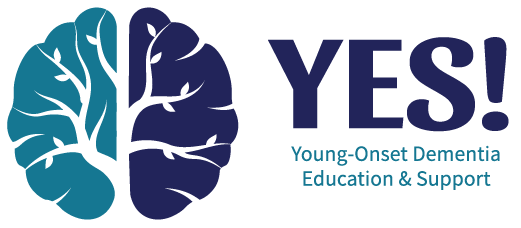The challenges of Young-Onset Dementia are unique, and you are not alone.
Diagnosis and Misdiagnosis
- Young onset dementia is considered rare, which often means that getting an accurate diagnosis is challenging and often takes a long time. Families know that getting an accurate and early diagnosis is critical to managing dementia.
- Typical misdiagnoses for younger patients include depression, high stress, sleep apnea, or symptoms that resemble some other psychiatric illness. Surprisingly, there is a general lack of knowledge in primary care physicians and specialists.
Loss of Income
- The necessity to give up employment and driving takes an emotional and financial toll on everyone in the family.
- Younger patients have more significant financial responsibilities when their prime wage-earning years are cut short. Often there are still children in the home.
- As the disease progresses, the spouse or caregiving partner may need to retire earlier than planned. As the role of caregiver increases, they will often progress to part-time or full-time care when funds are not available for placement or a home care agency.
Managing Significant Practical Changes
- Families lack access to personal guidance for navigating the many decisions made throughout the stagers of the dementia maze.
- Managing mounting health insurance bills, co-pays, and increased paperwork and phone calls can be overwhelming and time-consuming.
- Losing health insurance and filing for disability is an equally overwhelming, time-consuming process, although crucial to accomplish.
- It may become necessary to relocate or downsize to a smaller home.

